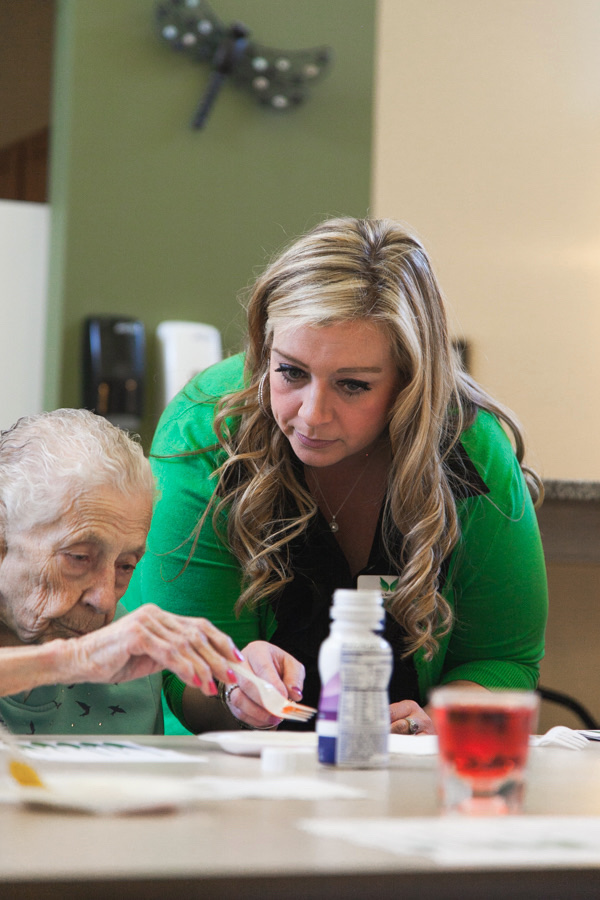It is not only rewarding to visit your senior loved ones in assisted living, but there are also many benefits of visiting the elderly. Keeping in touch with seniors through active communication and visits can help remind them of how loved they are while also helping to ward off social isolation, which could lead to a decline in health, depression, and cognitive decline.
Here are the top five benefits of visiting seniors in assisted living:
- In-person visits give you the opportunity to check on their health and overall well-being. These visits present the opportunity to make sure that they are happy in their new home and staying healthy. You can also find out if they are in need of anything additional or extra help. It is always a good idea to check in with their caregivers to find out how they are doing health-wise.
- Seeing family or loved ones can help seniors stay engaged emotionally and feel less lonely. While they will form friendships in their new home, nothing beats seeing family members and people who love and care for them. These visits can help seniors ward off feelings of stress, social isolation, and depression as well.
- Visits also create the perfect time to reminisce about happy times in the past. Nostalgic memory prompts that are triggered by home videos, music, and photos are especially beneficial for those with dementia and memory loss.
- These visits also create new memories for all of those involved to happily look back on. Even if it is just a simple walk or activity, your loved one will have great times with the people they care about to look back on when you and your family are not able to be around in person.
- Most importantly, visits remind your loved one just how cared about and loved they truly are. While the phone and other means of communication are always wonderful ways to stay in touch, there is nothing quite like a real visit to put a smile on your loved one’s face. Taking the time out of your busy schedule to spend with them is a big reminder of how much you care for your loved one.
Do you think assisted living could be the right choice for your loved one? Contact Angels Senior Living today for an evaluation of your or your loved one’s situation.






